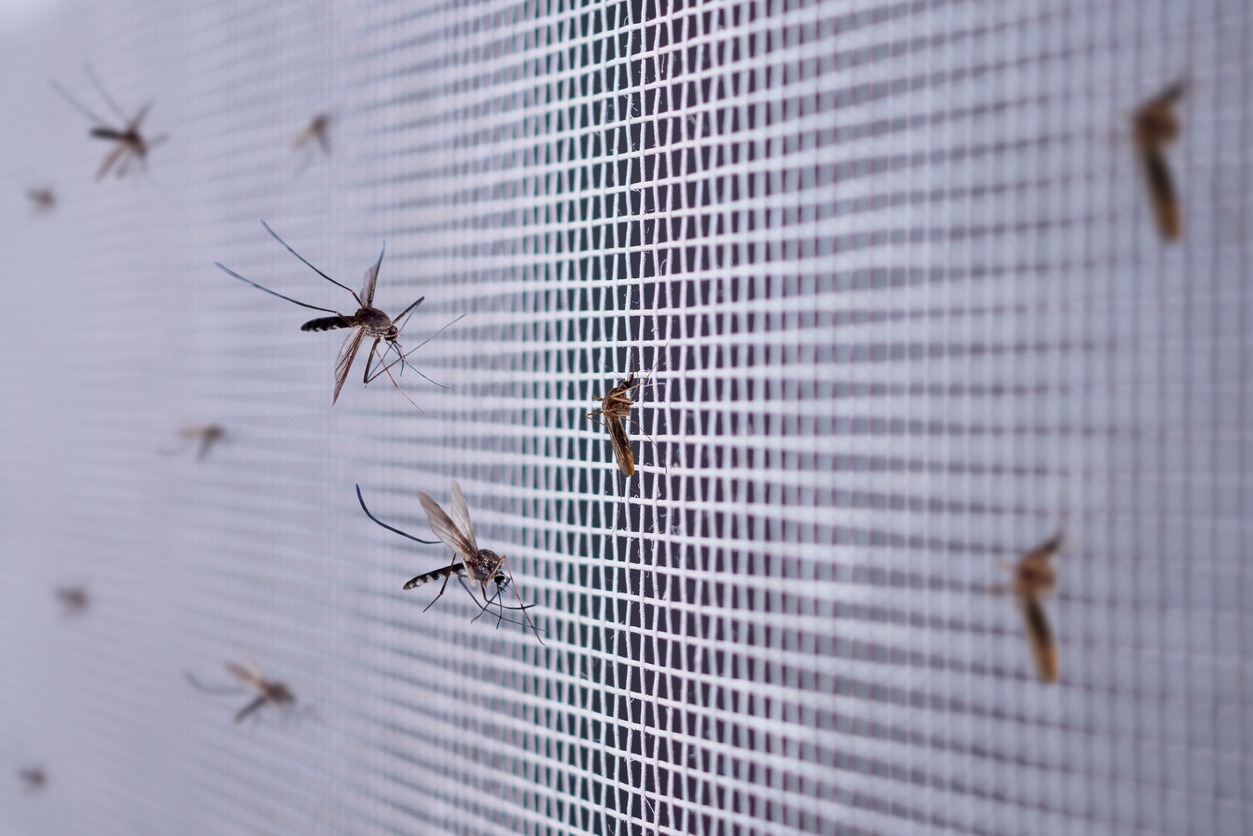The chemical DEET, which can be used to repel insects, is practically a household name these days. This amazingly effective ingredient can be found in a variety of commercial bug sprays, but it poses a risk of unpleasant side effects for human beings and should be avoided if at all possible.
It should come as no surprise that a lot of people are looking for healthier alternatives. As a consequence of this, many different homemade insect repellents that are effective have been developed as a result. Many people believe that it should be illegal in today’s society to spray harmful chemicals directly onto one’s skin.
1. Spicy Pepper Insect Repellent
Capsaicin, which is derived from cayenne pepper, is combined with refined paraffin wax in this all-natural bug spray to maximize its ability to ward off insects. The spray is most effective against insects with soft bodies, such as spider mites, whiteflies, aphids, and cabbage loopers. Beet armyworms are another target of the spray. The product is gentle enough to spray on houseplants, and it can easily add a layer of protection to areas of your kitchen that are difficult to access. Because capsaicin has the potential to irritate the eyes, it is important to remember to wear eye protection when applying the spray.
2. Essential Oils
When combined with a liquid medium, essential oils can serve a variety of purposes in the kitchen. These purposes become more apparent when the oils are diluted in water. Oils derived from lemongrass, citrus, peppermint, eucalyptus, tea tree, citronella, catnip, and lavender, among others, all have properties that can ward off insects. You can use the oils singly or mix them to create a straightforward remedy for bug bites. A small spray bottle should be used to combine approximately one cup of water with 25-30 total drops of oil. Spray the cracks and crevices in your kitchen where insects could be getting in, after shaking the bottle well. Plus, the aroma in your kitchen will be very pleasant.
3. Bay Leaves
It may come as a surprise to learn that bay leaves can ward off a wide variety of pests that could be lurking in your pantry. Both the fresh and dried forms of the leaves have a strong, unpleasant odor that repels insects. Make sure that the dried goods in your pantry are kept in containers made of thick, airtight plastic that is topped with a bay leaf for added protection. Rice, grains, and cereal are all examples of foods that can benefit from having dried bay leaves added to them while they are being stored in plastic bags.
4. Basil
Invest in a basil plant so you can use it in the kitchen and as a pest deterrent at the same time; it’s the best of both worlds. You should have no trouble locating basil plants in your neighborhood garden shop or the produce section of most supermarkets; once you do, simply place the plant in a small pot and keep it on the counter in your kitchen. Basil has a delicious flavor and a wonderful aroma, but many insects can’t stand the smell of basil and are naturally repelled by it. Basil can be used in a variety of culinary applications.
5. Mosquito Netting
Insect netting is, without a doubt, made entirely of natural materials and can be quite efficient if it is utilized appropriately. You will be able to create a sizable area that is free of insects using this method, which will enable you to take advantage of the sunshine without being bothered by pesky insects. If you leave this area, you might want to bring your trusted bug-netting hat with you or buy some netting from the camping or sports store in your neighborhood. These stores frequently sell larger netting that can be used to block off door entrances to a cabin, tent, or other structure. When it comes to working outside during the time of year when insects are prevalent, the hats, despite their potentially amusing appearance, are a necessity.
6. Vinegar
Vinegar is a tried-and-true cleaning agent that is commonly used in kitchens. This is not exactly a well-kept secret. A natural treatment for fruit flies can be made by placing a few drops of dishwashing liquid in a bowl or glass containing white distilled vinegar or apple cider vinegar. To lure the flies inside, create a trap by covering the container containing the solution with plastic wrap or foil and then poking small holes into the surface of the container with a toothpick.
7. Soap Spray
A soap spray is a very similar homemade pesticide to an oil spray, and like the oil spray, it is effective in warding off mites, aphids, whiteflies, beetles, and other types of insect pests that feed on small, hungry insects. Mix one and one-half teaspoons of mild liquid soap with one quart of water, and then spray the mixture directly on the surfaces of the plants that are infected with the pests. This is a basic recipe for making a soap spray insecticide. It is possible to apply a soap spray insecticide whenever it is required; however, it is always recommended to avoid applying it during the hot, sunny part of the day and instead do so in the evenings or early in the mornings. A soap sprays insecticide functions in a manner that is comparable to that of an oil spray pesticide.
8. Garlic Spray
When garlic is used as a natural insecticide, its potent odor, which some people find appetizing while others find repulsive, is an important factor. Garlic is well-known for having a pungent aroma, which some people find appetizing while others find repellent. It is not clear if garlic spray and chili spray are insecticides or are more likely insect repellents, but regardless, these common kitchen ingredients can be used to knock down, or even knock out, insect infestations in the garden.
Garlic spray and chili spray can be used to reduce the number of insects in the garden. To make a simple garlic spray, you will need two whole bulbs of garlic (not just two cloves), which you will need to puree in a blender or food processor along with a little bit of water. After allowing the mixture to sit for a full 24 hours, strain it into a quart jar and add an optional half cup of vegetable oil, one teaspoon of mild liquid soap, and enough water to fill the jar. To make use of this homemade insecticide, combine one cup of the mixture with one quart of water, and then spray it generously on plants that have been infested.
9. Diatomaceous Earth
This natural substance, which has a name that is a little difficult to say, is created from a sedimentary rock that was formed by fossilized algae (diatoms), and it is a resource that is quite plentiful (it is said that diatomaceous earth makes up 26 percent of the earth’s crust by weight). One of the many applications for diatomaceous earth in and around the home is as a natural insecticide, and this is just one of its many uses.
This material is effective not because it poisons or suffocates the insects, but rather because of the abrasive qualities it possesses and its propensity for absorbing the lipids, a waxy substance found in the exoskeleton of insects, which then causes the insects to become dehydrated and die. If you have a small yard, you might want to consider sharing a bag of diatomaceous earth with a neighbor if you can only find it in large quantities at your local garden center. Diatomaceous earth is typically sold there.
To use, simply dust the ground around your plants, or even sprinkle it on the foliage, and it will help control snails, slugs, and other crawling insects. You can also apply it directly to the foliage. Because of the dried nature of diatomaceous earth, for it to be an effective natural pesticide, it must be reapplied after each rainfall.
10. Eucalyptus
In traditional medicine, eucalyptus has a long history of use as a curative agent. When it comes to the management of pests, it is without a doubt of tremendous value. In a lot of situations, you can make a big difference very quickly by soaking a small towel in eucalyptus oil and then placing the towel in a location that has a history of attracting a lot of insects and other pests.
Bugs are annoying little creatures that can make life difficult, especially when you’re trying to enjoy a relaxing meal outside in the fresh air, but you have to contend with the nuisance of bugs. You probably already know this, but did you know that there are a few everyday items found around the house that can help keep insects at bay? Many of the aromas that are pleasant to humans are produced by plants in nature as a defense mechanism against insects.

